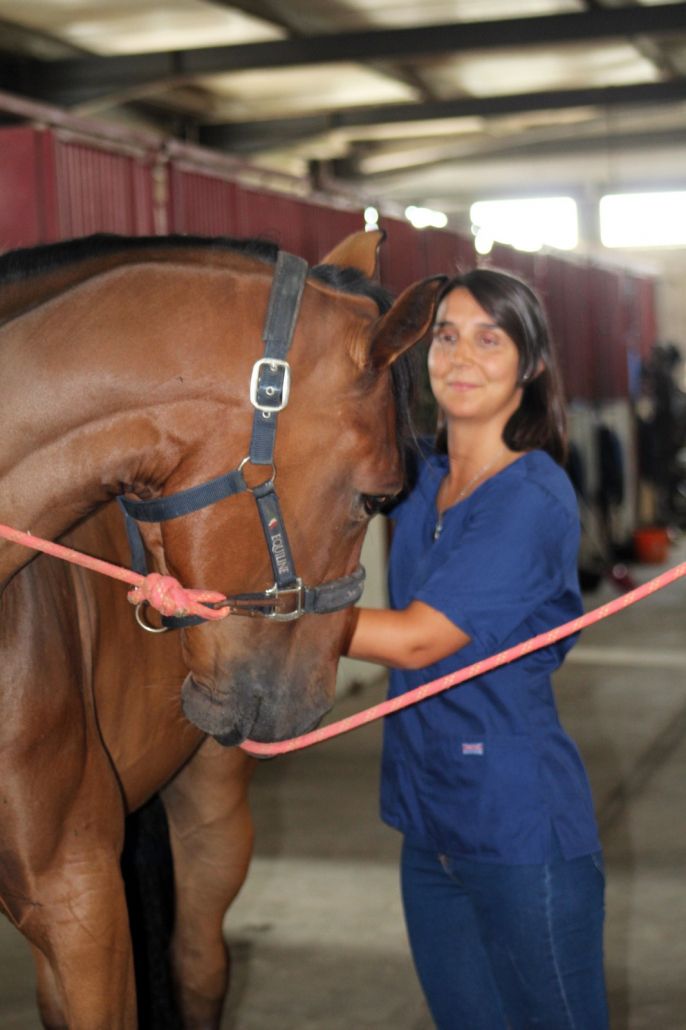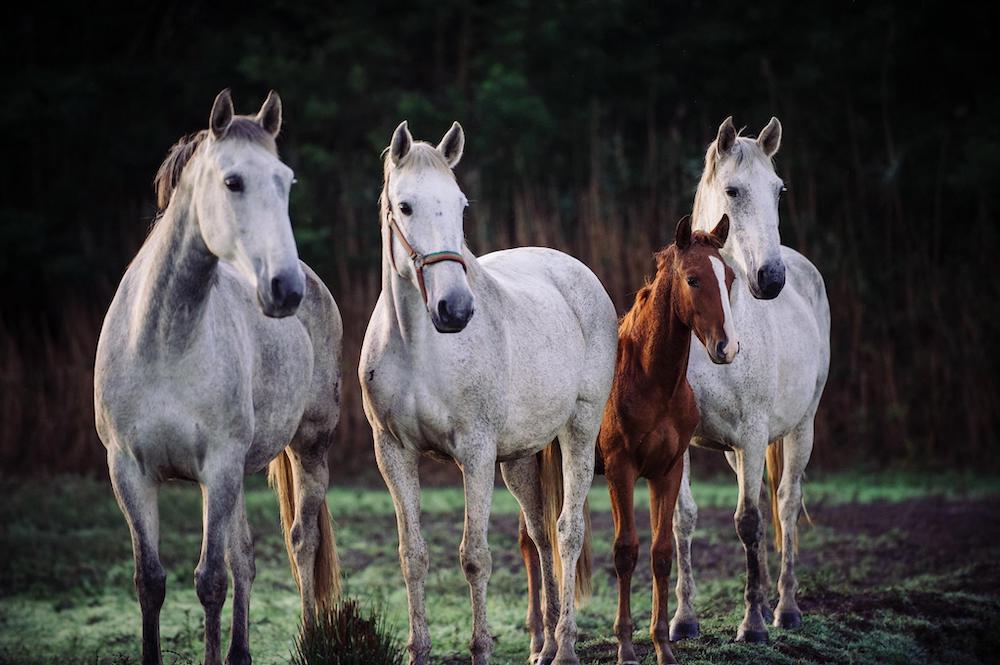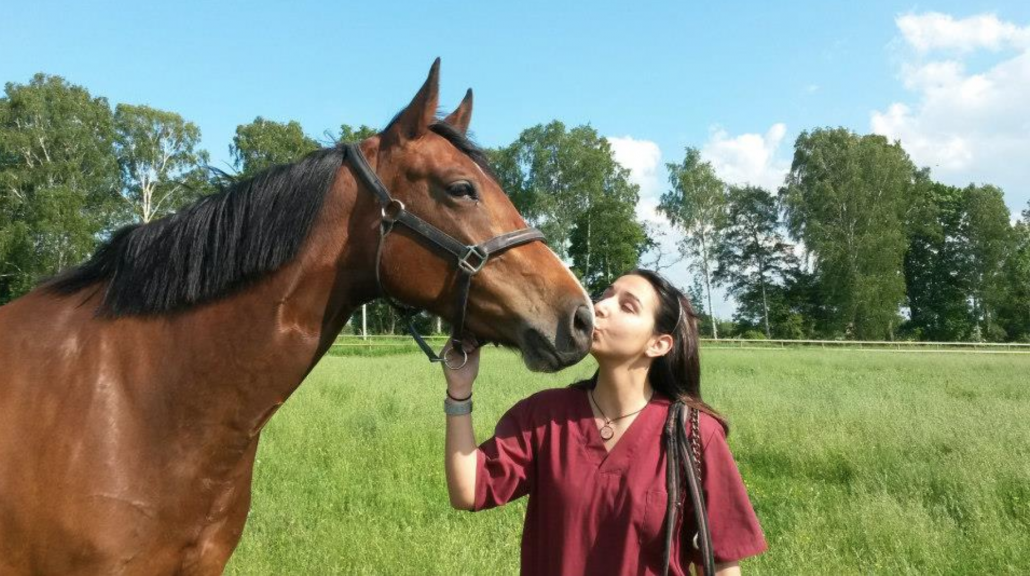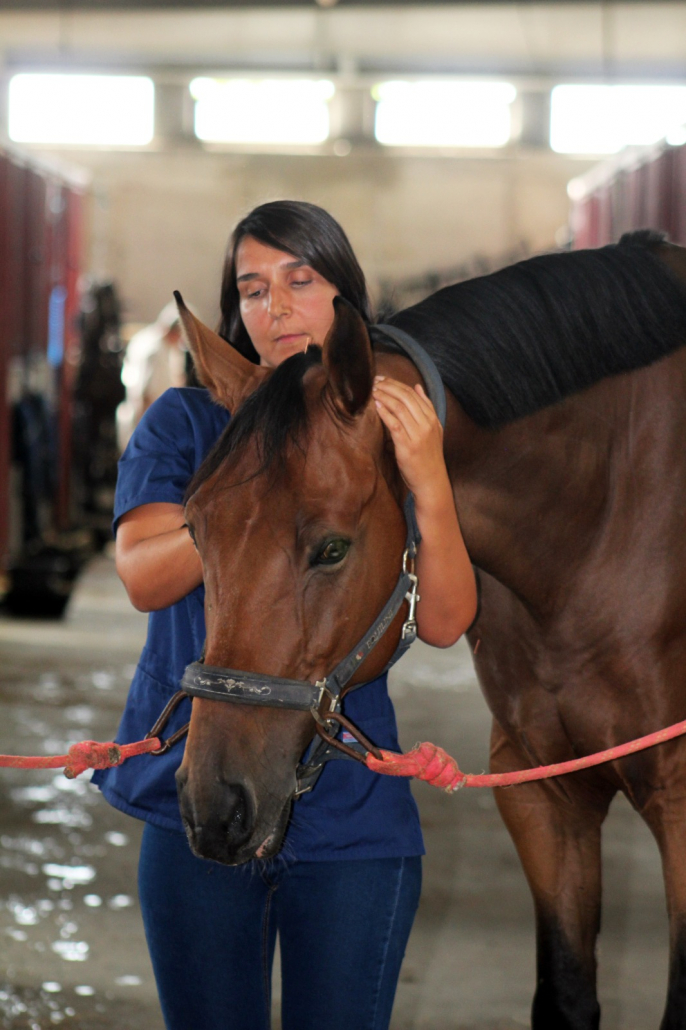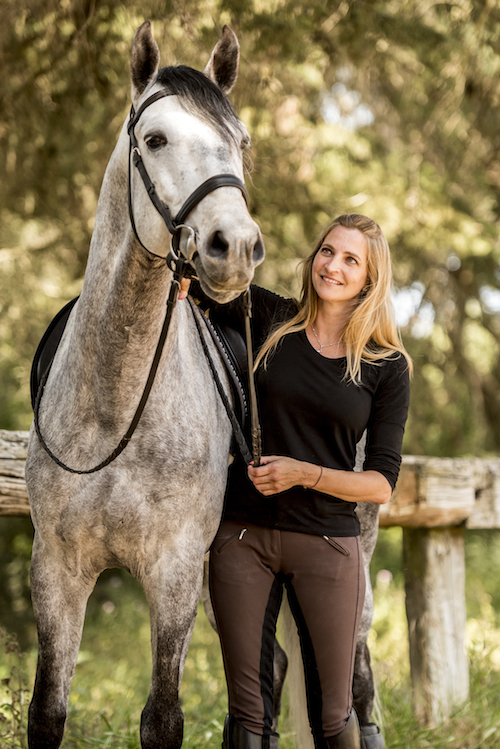CBD oil for horses: what do you need to know
CBD for Horses by Cecilia Leal
Nowadays, products based on Cannabis plant are becoming a popular trend, especially for human medical use. However, what do we know about its use in pets, more specifically, in horses?
The first thing to note on this subject is that there is common misunderstanding between the terms cannabis, marijuana, hemp, CBD and THC, as well as an erroneous perception that CBD oil contains the
(tetra-hydro-cannabinol). Let us start by clarifying thepreviously mentioned terms.
The Plant
Cannabis is an Asian herb of the family Cannabaceae, which comprises two different species: Cannabis sativa and Cannabis indica. Although there are similarities between the two, there are also important differences: Cannabis sativa belongs to the hemp family and has tough fibrous, tall and loose branches, and Cannabis indica is a low-growing densely branched species. Unfortunately, the term is used interchangeably in popular culture with marijuana although strains of cannabis can be either marijuana or hemp depending on their concentration of THC.
Hemp (Cannabis sativa) is legally defined (in the USA and the EU) as any part of the cannabis plant that contains less than or equal to 0.3% THC. Hemp has traditionally been farmed for industrial uses (e.g., textiles, paper, biodiesel, construction materials), as well as for food (hemp seeds and hemp seed oil).
The term Marijuana is typically used for the psychoactive dried resinous flower buds and leaves of the cannabis plant (Cannabis sativa or indica) but can refer to any part of the cannabis plant that contains more than 0.3% of THC (De Briyne et al., 2021).
CBD & THC applications
The Cannabis plant contains hundreds of different active compounds, which have either psychoactive or non-psychoactive effects. The two main components are are THC (tetra-hydro-cannabidiol) and CBD (cannabidiol). THC is a psychoactive component of the cannabis plant that is linked to the ìnebriated` state.
CBD, on the other hand, has been investigated for many conditions, most notably epilepsy, but also including, anxiety, mental health conditions such as schizophrenia, appetite improvement, nausea relief, sleeping disorders, elevated intraocular pressure, pain related to chemotherapy treatments, and multiple sclerosis-related spasticity.
THC is psychotropic in humans and dogs, which have a high number of cannabinoid1 receptors in their brains. CBD, on the other hand, has no psychotropic effects and is particularly effective at low doses.
Studies of CBD effects on horses
In horses, CBD products have shown promise for treatment of hyperaesthesia (Ellis & Contino, 2019), osteoarthritis pain (Sanchez-Aparicio et al., 2019), anti-inflammatory effect in chronic inflammation (Turner et al., 2021), visceral pain, inflammatory processes and changes in intestinal motility in horses (Galiazzoa et al., 2021). Although available objective data regarding therapeutic dosage is still scarce, different dosages have been studied and did not cause adverse effects, like incoordination or sedation, and was overall well tolerated (Yocom et al.; Blanc et al.; Williams et al., 2022).
A study made by Ellis and Contino (2019) reported improvements in a horse with severe pain sensitivity when administered 500 mg CBD per day. Another study reported lower reactivity (spookability) after 6 weeks of supplementing with 100 mg of CBD every day (Draeger et al., 2021). In addition, according to Turner et al. (2021), CBD was responsible for decreased inflammatory cytokines (proteins associated with pain and inflammation), in a study conducted in vitro.
Galiazzoa et al. (2021) performed a study in order to identify the distribution of different cannabinoid receptors in the equine intestine. These findings support CBD use against visceral pain, inflammatory processes and changes in intestinal motility in horses. Therefore, it could have interesting applications in cases of colic, inflammatory bowel disease and intestinal hipomotility after colic surgery.
Is CBD safe to use?
Williams et al. (2022) conducted pharmacokinetics studies looking at the absorption and clearance of CBD. A dose of 175 mg and 1000 mg was given to 500 kg/1100 lb horses, orally, once per day for 7 days. There was no incidence of diarrhea or loose stool, decreased appetite or somnolence recorded.
However, it is important to note that despite the relatively high dose (1000 mg daily) plasma concentrations were below the effective concentrations reported by Turner (2021). Therefore, a horse might need significantly higher oral doses of CBD for any effectiveness against pain and inflammation.
In another study conducted by Yocom et al. (2022), CBD was reliably detected in synovial fluid at 1500 mg single dose. Because cannabinoid receptors have been identified in osteoarthritic joints in humans and dogs it explains the pain modulation mechanism of osteoarthritic pain, in this study mild hypocalcemia was seen in all horses and elevated liver enzymes were observed in 8/12 horses, but these changes improved or normalized within 10 days after the final CBD dose. Some horses presented soft-form manure for a few days and 10/12 gained weight. All horses maintained normal physical examination parameters, attitude, and appetite throughout the duration of the study. No behavioral changes, including sedative-effects, were observed.
Most CBD studies performed on horses are very recent (the latest one dates of 2019) and additional studies are required to investigate the efficacy in treating specific conditions and to establish therapeutic doses.
What is the status of CBD oil use on competition horses?
According to FEI’s regulations, all natural and synthetic cannabinoids containing THC are banned substances, meaning they are not permitted for use on the competition horse at any time. However, cannabidiol (CBD/CBDA) is under controlled substances. According to FEI, controlled medication aresubstances that are deemed by the FEI to have therapeutic value and/or be commonly used in equine medicine. They have the potential to affect performance and/or be a welfare risk to the horse. This means that although your horse may be administered CBD, you cannot compete while it is present in your horse’s organism.
Previous research has indicated that CBD can be detected in urine for up to 72 hours following a single dose. It should also be noted that, despite the considerably low quantity of THC present in CBD products,THC can be present for up to 24 hours post administration in plasma samples (Williams et al., 2022).
Equine Vet Located in Ericeira Portugel (close to Lisbon) Contact – 00 351 915 010 360
Email – ceciliarodrigoleal@gmail.com Facebook Page Equi24
OTHER ARTICLES – Feeding Lusitanos, Shoeing, Piroplasmosis
Sources
Blanc M. P. St. , Chapman A. M., Keowen M. L., et al., Effects of a Supplement Containing Cannabidiol
(CBD) on Sedation and Ataxia Scores and Health, Journal of Equine Veterinary Science,
10.1016/j.jevs.2022.104085, 117, (104085), (2022).
De Briyne, N.; Holmes, D.; Sandler, I., et al. Cannabidiol Oils and Tetrahydrocannabinol—What Do Veterinarians Need to Know? Animals 2021, 11, 892. https://doi.org/10.3390/ ani11030892.
Draeger A. L., Thomas E. P., Jones K. A., et al., The effects of pelleted cannabidiol supplementation on heart rate and reaction scores in horses. Journal of Veterinary Behavior, 2021, Vol 46, 97-100.
Ellis K, Contino E. Treatment using cannabidiol in a horse with mechanical allodynia. Equine Vet Educ 2019; 33:e79–82.
Galiazzoa G., Tagliaviaa C., Giancolaa F., et al., Localisation of Cannabinoid and Cannabinoid-Related Receptors in the Horse Ileum. Journal of Equine Veterinary Science, 2021, Vol 104, 103688.
Sanchez-Aparicio P., Floran B., Velazquez D. R., et al., Cannabinoids CB2 Receptors, One New Promising Drug Target for Chronic and Degenerative Pain Conditions in Equine Veterinary Patients, Journal of Equine Veterinary Science, 2020, Vol 85, 102880.
Turner S, Barker VD, Adams AA. Effects of cannabidiol on the in vitro lymphocyte pro-inflammatory cytokine production of senior horses. J Equine Vet Sci 2021;103:668.
Williams M.R., Holbrook T.C., Maxwell L., et al. Pharmacokinetic evaluation of a cannabidiol supplement for horses. J Equine Vet Sci 2022; 103842.
Yocom A. F., O’Fallon E. S., Gustafson D.L., Contino E. Pharmacokinetics, Safety, and Synovial Fluid Concentrations of Singleand Multiple-Dose Oral Administration of 1 and 3 mg/kg Cannabidiol in Horses. J Equine Vet Sci 2022, 113, 103933.
